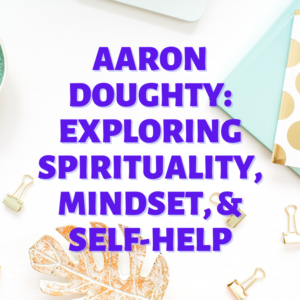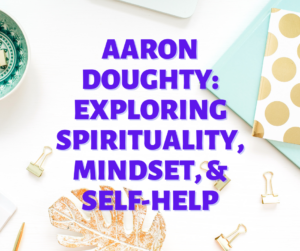Many struggle with hidden challenges, past traumas unknowingly shaping their present lives. Gabor Maté explores how these experiences affect our well-being. This exploration of Maté’s work unveils his insights on trauma, addiction, and the mind-body connection.
Table of Contents:
- Understanding Trauma with Gabor Mate
- Gabor Mate on Addiction
- The Mind-Body Connection: A Key Focus for Gabor Mate
- Childhood Development and Parenting According to Gabor Mate
- Gabor Mate’s Books and Work
- Critiques of Gabor Mate
- Conclusion
Understanding Trauma with Gabor Mate
Gabor Maté defines trauma not as the event itself, but its internal impact. It’s the concussion, not the blow. This distinction highlights the potential for healing.
Maté, born January 6, 1944, experienced this firsthand when separated from his mother as an infant in Nazi-occupied Hungary. This early childhood trauma shaped his understanding of how such events manifest in adulthood.
As he explained, feeling unseen is a significant trigger linked to early separation anxiety. This underscores how seemingly minor childhood experiences have long-lasting consequences.
Types of Trauma
Maté distinguishes between “big-T” traumas (abuse, parental loss) and “small-t” traumas. Small traumas stem from unmet childhood needs, potentially inflicted even by well-meaning parents. These shape a child’s emotional landscape subtly yet impactfully.
Gabor Mate on Addiction
Maté also explores addiction. Working in Vancouver’s Downtown Eastside showed him the prevalence of childhood trauma among those with addictions. His personal experiences battling addiction add credence to his view.
He argues to “ask why the pain,” not “why the addiction.” This contrasts with the 12-Step tradition and most Western practices.
Addiction and Pain
Maté’s view of addiction suggests behaviors (drug use, overeating, gambling) soothe underlying, trauma-caused pain. This compassionate approach challenges the conventional disease model.
The Mind-Body Connection: A Key Focus for Gabor Mate
Maté is interested in the interplay between mind and body, rejecting the notion of a mind-body connection. He sees mental and physical states as one system.
In his 2003 book, When the Body Says No, he explores how stress triggers inflammation. These insights emphasize emotional well-being’s importance for physical health.
Compassionate Inquiry: A Method Developed by Gabor Mate
Maté developed Compassionate Inquiry, a psychotherapeutic approach addressing hidden trauma. This method helps therapists understand clients’ subconscious minds and facilitates self-discovery. It enables recognizing patterns and breaking free.
Childhood Development and Parenting According to Gabor Mate
A strong parent-child bond is crucial for healthy development. Maté co-authored Hold On to Your Kids with Dr. Gordon Neufeld.
They emphasize nurturing relationships as essential, often at odds with modern societal influences. He offers guidance for parents and educators media requests navigating our complex world. Maté’s message helps children find these important relationships, especially with the media kit available, despite societal pressures.
ADHD and Gabor Mate
Maté’s perspective on ADHD challenges the traditional view of it as an inherited disease. He views it as a developmental delay, originating from early experiences and ongoing stressors. This ties into the earlier mentioned small traumas and the mental climate they create.
Gabor Mate’s Books and Work
Maté has gained global recognition with best-selling books: The Myth of Normal, Scattered Minds, and In the Realm of Hungry Ghosts. He has also authored other books like When the Body Says No.
His work, featured in numerous speaking requests and explored through his main menu of topics, earned him awards like the 2009 Hubert Evans Prize for Literary Non-Fiction. He continues spreading his message through lectures, courses, and media, impacting millions.
Critiques of Gabor Mate
While Maté’s views resonate with many, some criticize his work. Psychologist Stanton Peele disagrees with solely attributing addiction to childhood traumas.
Peele acknowledges these experiences’ power but stresses people’s natural inclination to heal. Other critics suggest that while trauma is key to wellness, Maté’s focus goes too far. Maté believes that physical illness stems from implicit memories and the unconscious dynamics beneath our awareness. These hidden assumptions influence how our bodies react, with symptoms being a real message from within.
Conclusion
Gabor Maté’s exploration of trauma, addiction, and their impact on well-being resonates with millions. His approach doesn’t place blame on people dealing with addictions or physical illness. Rather, Maté’s real-life stories encourage a more supportive environment for addressing their challenges and offer insight to anyone seeking more than just temporary fixes. People recognize their emotional pain may have roots in their early childhood environment, stemming from both emotional stress and loss. This approach doesn’t focus on the harmful behaviors themselves. Instead, it tries to find and heal their underlying cause.
Maté’s influence on how we view and respond to struggles like substance dependence is undeniable. By focusing on the individual’s experience, he promotes compassion and understanding. His cutting-edge science, combined with a compassionate approach, shines a light on how our early childhood environment affects our adult lives. Maté emphasizes the need for compassionate inquiry and makes his point known via social media and best-selling books. This encourages a more supportive response to people facing challenges. He connects cutting-edge science and a compassionate approach, arguing that the roots of addictions often originate from trauma.


